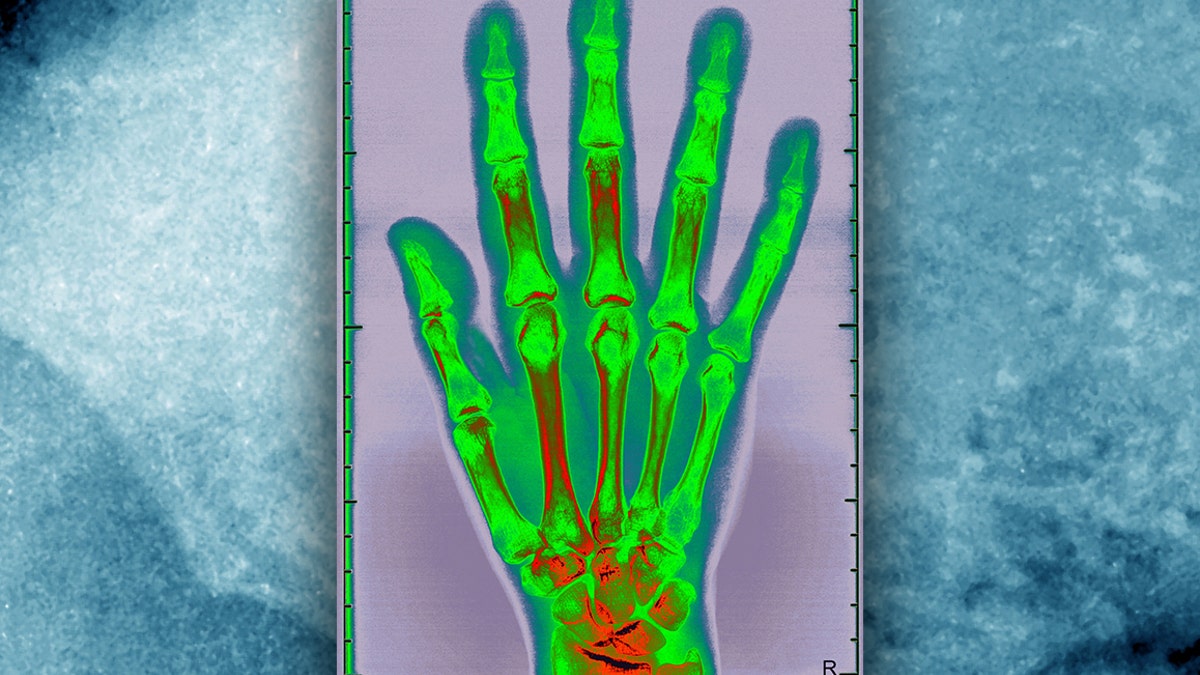Detransitioner Cat Cattinson speaks out about the harm of puberty blockers
Detransitioner Cat Cattinson joined 'The Ingraham Angle' to explain several risks and side effects of puberty blockers despite Planned Parenthood saying they are safe.
The president of World Professional Association for Transgender Health, Marci Bowers, has done a 180-degree turn on the use of sex change drugs on minors during a critical puberty stage after previously sounding the alarm about its potential to cause permanent sexual dysfunction for the rest of a child's life.
The turn on hormone recommendations occurred around the time Bowers joined WPATH as president, one of the most powerful organizations which sets global standards for trans care for children and adults. The professional standards set by WPATH are observed by leading providers, including the U.S. Department of Defense, gender clinics across the U.S. – such as Boston Children's Hospital, as well as insurance companies.
Before joining WPATH, however, Bowers held views considered controversial in the transgender health space.
"Unfortunately, [transgender care] has been hijacked by people who have their own political agendas," she told Mount Sinai Health in June 2021.
Bowers consistently spoke out about her concerns on whether puberty blocking hormones should be used in critical early stages of pubertal development called Tanner Stage 2.

Dr. Marci Bowers of WPATH (Fox News Digital | Youtube/Screenshot)
"Every single child who was or adolescent who was truly blocked at Tanner Stage 2 has never experienced orgasm. I mean, it's really about zero," she said.
Bowers complained in a talk with Mount Sinai Health System that she was getting heat from the left for "abandoning" the transgender agenda by speaking out against puberty blocking hormones, also called gonadotropin-releasing hormone analogues (GnRHa), a class of drugs which suppresses sex hormones by continually stimulating the pituitary gland.
"I had concerns about initiating hormone blockers for children because it affected their surgical results that might affect how they respond sexually. And I got a lot of backlash on the left also for people who felt like I was abandoning the cause," she said.
Regarding surgical results, Bowers was discussing the later complications biological males who wish to have a sex-change operation can face after taking GnRH because it can block penis growth. Surgeons can have little tissue to work with for sex change surgeries and will have to use skin grafts from other regions of the body.
Such was the case for one of Bowers' patients who was put on puberty blockers, Jazz Jennings. The penis Bowers operated on "was the size and sexual maturity of an 11-year-old’s" and required a graft from her stomach lining, according to the Free Press.

Jazz Jennings attends The 33rd Annual GLAAD Media Awards on April 02, 2022 in Beverly Hills, California. (Steven Simione/FilmMagic)
In 2019, Bowers performed Jennings' vaginoplasty surgery at age 17. The surgery had a series of complications — including when it split apart, requiring a visit to the emergency room – and numerous revision surgeries. It appears that sometime after the surgery, Bowers became opposed to administering puberty blockers to minors at the Tanner 2 stage.
"I’m not a fan of blockade at Tanner 2 anymore, I really am not," Bowers told the Free Press in October 2021.
"We don't know [whether]… they are going to be able to achieve sexual satisfaction," she also said at a Duke University event.
"It's important in relationships, and I know that from my work with female genital mutilation survivors, that the lack of being able to be intimate with a partner is very important. And so this is what really raised the red flag for me," she told Mount Sinai.
However, according to the most recent standards from WPATH, which Bowers endorsed, it stated they "recommend[ed] health care professionals begin pubertal hormone suppression… after [transgender children] first exhibit physical changes of puberty (Tanner stage 2)."
"The general problem with WPATH guidelines is that they are primarily based on opinion and not on high quality research. That judgment has been affirmed by structured reviews, carried out in the United Kingdom, Norway, and Denmark. The current protocols used in many if not most American clinics fail to adhere to the original studies conducted in the Netherlands. And even those studies have been harshly criticized for failure to adequately assess outcomes of transition," said Dr. Stanley Goldfarb of Do No Harm. "For Dr. Bowers to demonstrate varied opinions on the use of puberty blockers and other procedures is not surprising given the absence of high-quality-evidence-based guidelines that are required to inform clinical decisions."
That is the same stage at which Bowers warned can cause a child to never able to be able to have an orgasm later in life.
Furthermore, an opinion article she published in The New York Times in April did not mention the flags she raised about blockers, and appeared to offer a full endorsement.
"When considering the growing body of overwhelmingly positive data about adult transgender treatment, it makes sense that earlier intervention, which can lessen the permanent effects of puberty, would make gender transition easier for teenagers," Bowers said.
In the article, Bowers went on to definitively downplay the unknown long-term effects that GnRH's can have on developing bones.

Child Hand, X-Ray, Healthy Right Hand, Dorsal View. (Photo By BSIP/Universal Images Group via Getty Images) Child Hand, X-Ray, Healthy Right Hand, Dorsal View. (Photo By BSIP/Universal Images Group via Getty Images) (Getty)
"Decreasing bone density — a side effect of puberty blockers — can return to normal once puberty resumes, either by withdrawing the blockers or administering cross-sex hormones," she said.
However, in direct contrast to Bowers' claim, one of Europe's top medical schools recently said GnRH should be considered "experimental" since it delayed skeletal development and bone mineralization which may never fully restore – even with the introduction of cross-sex hormones.
Bowers denied that she changed her point of view in a statement.
"My view of puberty blockers has never wavered— they are safe and reversible. Medicine to delay puberty can be a helpful tool to give adolescents, their families and their health care providers time to understand a transgender young person's specific needs and develop a plan for health care," she told Fox News Digital. "Puberty blockers are in general a positive and important part of care for gender-diverse adolescents. Medical science is constantly evolving, so WPATH regularly reviews and updates Standards of Care to ensure they reflect the latest science and medical research."
Bowers, a trained gynecologist, refers to herself as the "Beyoncé of Bottom Surgery" for performing 2,250 vaginoplasties and 3,900 sex change surgeries overall, including some on minors.
When Bowers was asked in the past about whether she believed WPATH welcomed skepticism about GnRH, she replied, "There are definitely people who are trying to keep out anyone who doesn’t absolutely buy the party line that everything should be affirming, and that there’s no room for dissent."
"I think that’s a mistake," she told the Free Press.
CLICK HERE TO GET THE FOX NEWS APP
Recently Bowers wrote an email to WPATH providers, which sails, "Ultimately, what terrifies conservatives most is that gender diversity is a force of nature that can no longer be contained by religious conscription or enforcement of a gender binary."









































